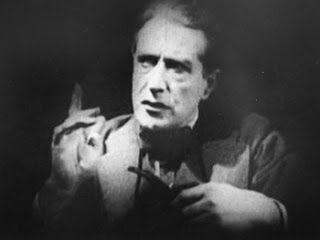Taking liberties
Well we have a little over two weeks before the latest Warner Bros Sherlock Holmes film hits screens in the US and Europe. I think it is pretty safe to say that whether you loved or hated the first offering you are expecting more of the same from the sequel. I certainly am and if the trailers to date are anything to go by I am not wrong.
There was an awful lot wrong with the first film but, to be fair, there was a fair amount that was right also. However this has been the case for Holmes screen dramatisations since the first. If we look back to the dawn of cinema it is easy to see that the Sherlock Holmes stories have suffered as much as other works at the hands of screenwriters.
The most famous of the early screen outings starred Eille Norwood and his (silent) films were set in the era in which they were filmed (i.e. the 1920s). Norwood enjoyed the rare distinction of approval from Arthur Conan Doyle himself even though he, Doyle, wasn't entirely happy about the non-Victorian setting. A contemporary setting was also used when Arthur Wontner starred in some of the earliest talkie Holmes films in the early 1930s. In both cases this was dictated largely by budget.
Fox’s early efforts with Basil Rathbone relocated back to the Victorian era but, when they took over, Universal swiftly reverted to a contemporary setting.
In the 1950s and 60s efforts were made to keep Holmes in his Victorian setting. We saw the likes of John Neville, Douglas Wilmer, Ronald Howard and Peter Cushing all as loyal servants of Victoria. This continued as we entered the 80s with Ian Richardson and Jeremy Brett continuing in the same vein.
Yet all of these took liberties with the source material to some degree or other. So when we object to such liberties do we do so more on the basis of what they are (i.e. do they cross any of our personal red lines) or who it is that is taking them?



Comments
Post a Comment